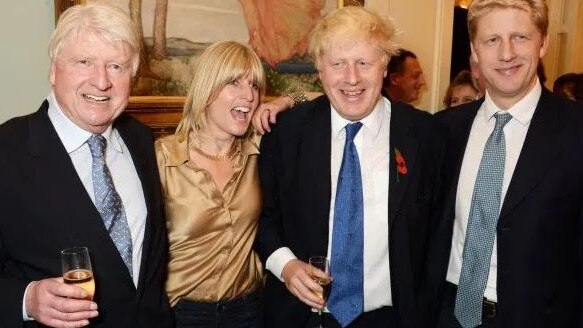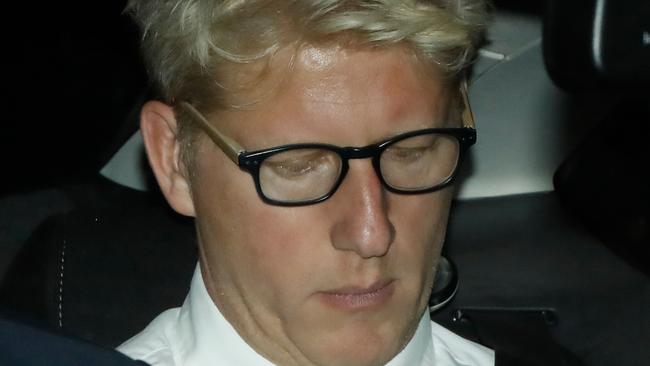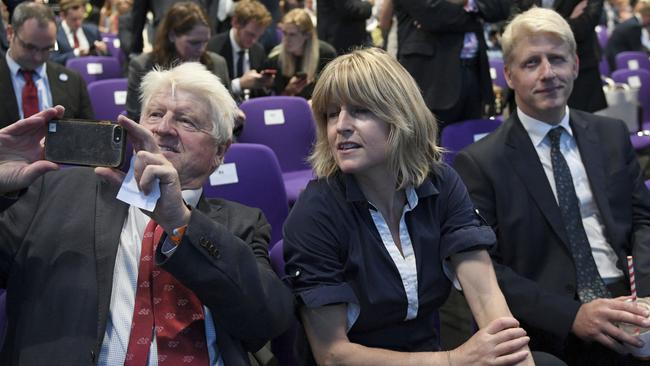Jo Johnson; the quiet brother who deal Boris his greatest blow
Jo Johnson’s resignation dealt Boris a body blow but it didn’t come as a surprise to anyone who knew him.

Jo Johnson’s resignation from his brother’s government this week dealt Boris a body blow, but it would not have come as a surprise to anyone who knows him.
The younger Johnson, a committed Remainer, announced overnight that he was leaving his brother’s government as he could no longer balance “family loyalty and the national interest”.
In a late night phone call between the brothers, the Prime Minister reportedly tried to persuade Jo not to go, ending the call by asking him to sleep on it. But by morning local time, Jo was determined to resign.
It was the second time he had resigned from government, having quit Theresa May’s cabinet in November over her withdrawal deal. At the time he accused Mrs May of offering MPs a choice between “vassalage and chaos”, and warned a no-deal Brexit would “inflict untold damage on our nation.”
This time around, he had been hit hard by his big brother’s prorogation of parliament and the removal of the whip from 21 Tory rebels who shared his views on leaving the EU.
As Boris pointed out as he acknowledged his “brilliant” brother’s resignation, it was not an easy decision for Jo to make.

The brothers are close — as is the entire Johnson clan — despite their polarised beliefs on the vexed Bexit question.
But while close, they are very different — have been since they were boys. While the flamboyant, at times buffoonish Boris aims straight for the spotlight, Jo is more reserved and unassuming; a man who thinks first, acts later.
And just as Boris’ time in politics has been marked by controversy (affairs, marriage breakup, much publicised screaming match with his girlfriend Carrie Symonds); Jo has risen quietly but effectively. After entering politics in 2010, he has been so impressive that he is spoken in some parts of Westminster as a future prime minister — something to which he says he has never given a second thought.
He has always been a committed Remainer, having spent much of his childhood and early adulthood in Brussels. He recently told The Telegraph UK: “I grew up in Brussels. I watched my father go to work every day for the European Commission. I did a master’s degree in Belgium, I lived and worked in France [as Paris correspondent for the Financial Times]. I’ve always believed we are better off in Europe but not run by Europe.”
Jo’s commitment to Europe is shared by his sister Rachel, a journalist, who tweeted after his resignation: “The family avoids the topic of Brexit especially at meals as we don’t want to gang up on the PM!”
I’m afraid to say this is rubbish. I said last night at a charity do that the family avoids the topic of Brexit especially at meals as we don’t want to gang up on the PM! https://t.co/IDXB1DrEN0
— Rachel Johnson (@RachelSJohnson) September 5, 2019
The Johnsons’ childhood — often described as gilded — wasn’t as easy as some believe, marked as it was by the mental illness of their artist mother, Charlotte who spent much of their early years in hospital. When she was away from home the boys, along with Rachel and brother Leo were brought up by their father Stanley — almost as flamboyant as Boris, to whom he is a steadfast and vocal support.

Jo, eight years younger than Boris, followed him to Eton and Oxford where, like his brother, he joined the notorious Bullingdon Club, albeit briefly.
He also met his wife, journalist Amelia Gentleman at Oxford. The couple now have two children, aged 14 and 15.
His rise in parliament was quiet but steady: in 2008 then PM David Cameron put him in charge of his policy unit and after becoming the MP for the London borough of Orpington in 2010 he moved on to become Universities Minister, then Transport Minister.
During the last three tumultuous Brexit years, while Boris has been widely regarded as a one-man band, his ambition greater for himself than for his party, Jo has widely been regarded as the Johnson who could unite the shredded Tories, reconnecting the party with disaffected metropolitan and younger voters. Until he resigned from Mrs May’s government last year, he was seen as an important member of the “Sensibles,” — the ministers led by then chancellor Philip Hammond and deputy PM Damien Green — who supported a soft Brexit. When he quit Mrs May’s government, Jo said he was relieved that he was no longer “trapped” in a government with which he disagreed on an issue in which he believed so profoundly.
“I knew that we would be steamrollered by the full weight of the Government PR machine and the terror of no-deal,” he said at the time. “This was my last chance to be heard and to have some influence on cabinet colleagues before they signed up to this crazy course of action.”
Many were surprised that Jo joined his brother’s cabinet earlier this year, given the brothers’ opposing views on Brexit, but it appears he thought he could influence Boris behind the scenes. But the arrival of Boris’s rottweiler chief strategist Dominic Cummings would have ended those hopes. It was Cummings who, to the horror of many in the party, engineered the expulsion of 21 Tory rebels this week, including the highly respected former chancellor Ken Clarke and Winston Churchill’s grandson Sir Nicholas Soames.
Although Jo did not rebel against the government during this week’s crucial Brexit delay votes, with his resignation he voted, like the rebels, with his conscience.
Just two years ago, political analysts were predicting a struggle between Boris and Jo for Downing St — one along the lines of Ed and David Miliband’s 2010 battle over the Labour leadership.
Jo’s second exit from government may on the surface have ended any hopes for leadership. But its message — that he can’t trust his brother’s government any more — may also have hurt Boris far more than it hurt him.



To join the conversation, please log in. Don't have an account? Register
Join the conversation, you are commenting as Logout